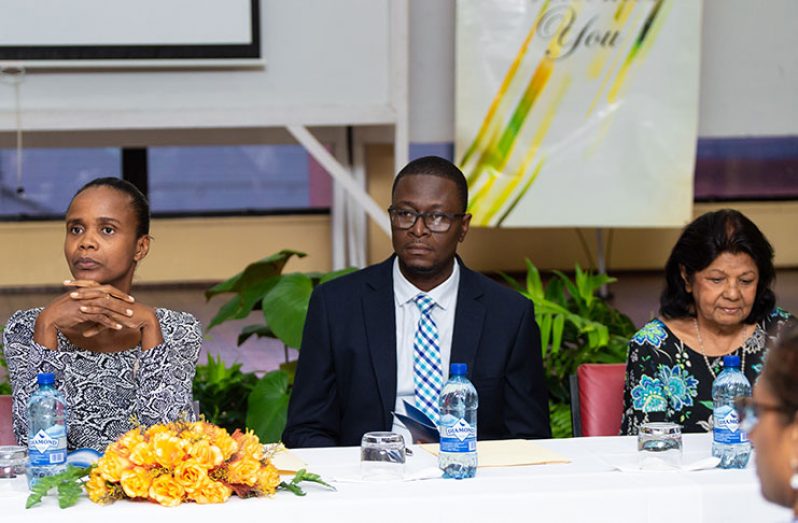— researcher finds, says society must stop victim-blaming
THERE have been about 4,000 reported cases of violence against children every year, a figure which chairman of ChildLink, Kosi John, said is worrying.
More children and families are empowered to report child abuse but the trauma which children experience is not yet understood and treated, he said, during a presentation titled “Lessons learnt from trauma stories on child abuse”.
The forum was organised by ChildLink in collaboration with the University of Guyana.
Sensitisation programmes have resulted in an increase in reported cases, but families are still expecting children to bounce back after abuse, assuming that there are no long-term effects.
“Trauma is the most avoided, ignored and untreated cause of human suffering,” he said, adding that it is becoming common knowledge.
Children have been suffering from long-lasting trauma because their relatives and families fail to realise that there is more to abuse than just addressing the issue.
In Guyana, 600 of the 4000 cases of abuse are sexual abuse while 50 per cent of the cases are neglect.
Child abuse or child maltreatment is defined as physical, sexual, and/or psychological maltreatment or neglect of a child or children, especially by a parent or a caregiver.
In order to address this and address the trauma that follows, John believes that more work needs to be done in the area of preventing violence and abuse of children.
Cases of abuse are less frequent in affluent families, but thanks to research, there is more clarity on the number of children being abused and those growing up with trauma from neglect.
“Violence is embedded in society and it has become a norm… we must arrest this trend and arrest it now, because the trauma which follows not only affects those who are abused, but those around them,” said John.
He identified the need for there to be a massive education campaign to teach young people that violent behaviour is wrong. The issue of abuse no longer remains private and should instead be addressed at the national level.
NEED TO STOP
Researcher and Journalist, Samantha Alleyne-Williams also highlighted the need for society to stop “victim blaming.”
Alleyne-Williams, who did in-depth research into the post-traumatic effects of child abuse, said society has developed a culture in which victims are held responsible for traumatic events.
“Victim blaming has impacted the way victims view and internalise trauma… many children exposed to more than one traumatic event are vulnerable to subsequent trauma,” said the researcher who interviewed several abused children.
According to her research, abuse of children starts from as young as zero to three years. In Guyana, sexual abuse of girl children remains high, with 801 cases being reported in 2018 compared to 392 in 2017.
In one instance, a mother accused a victim of wanting to break up her union with her husband because the child wanted to live with her father.
The researcher said many traumatised children have learnt to be submissive in reaction to others and they have developed a pattern of becoming helpless. This, she said, creates a situation for ongoing vulnerability and exploitation.
“Without understanding the ramifications of traumatic experiences, children are left to cope with the exposure to trauma,” said Alleyne-Williams.
The researcher found that all victims of sexual violence blamed themselves, while some victims of other forms of violence blamed others.
She highlighted some of the behavioural signs of trauma which include abrupt changes in relationships; becoming withdrawn; radical changes in grades; and dependency on alcohol and drugs.
A representative of ChildLink, Kaiesha Perry, said there is always help for children, especially those between the ages of three and 18.
She said there is behavioural therapy for children and adolescents who have suffered from abuse.




.jpg)










